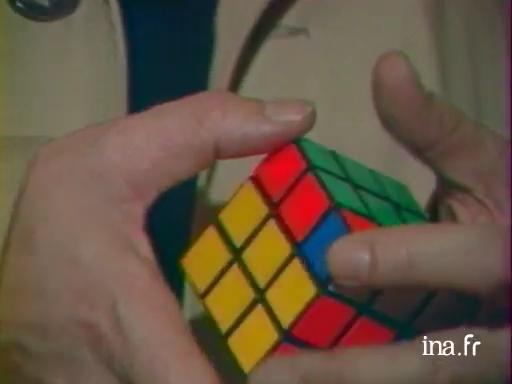The Rubik's Cube

Information
Report on the invention of the Rubik?s Cube, on the occasion of the inventor?s visit to France?s 1st Rubik?s Cube Championship. Interview with Erno Rubik on what motivated his creation of this brain-twister puzzle, 25 million of which have been sold worldwide. Testimonies by fans of the game.
Context
A cube, six colours, 156 blocks, millions of combinations and as many exasperated players have tried to resolve the mysteries of the most famous of puzzles: the Rubik's Cube.
Invented in 1974 by Erno Rubrik, a young Hungarian architect graduate of 29 years old, the Magic Cube was first created to resolve a technical difficulty: how to attach 26 cubes and position them so they don't fall? Commercialised in Hungary in 1977, the game broke down borders in 1980, changed its name (Rubik's Cube) and soon became very popular in 1982 the year of the first international Rubik's Cube championship, over a million had already been sold throughout the world.
But the enigma of the Cube remained and in 1981, the mathematician Halberstadt proposed a solution algorithm while a young British amateur of 12 years old published a bestseller You can do the Cube, which sold one and a half million copies. Today, we can see many amateur videos on the sites YouTube or Dailymotion which reveal the combinations and prowess of passionate players. A cult object, it became a luxury object for its fifteenth birthday, when the diamond workers Cutter made a cube out of 18 carat gold encrusted in coloured stones (emeralds, rubies, amethysts...). Today retired, Erno Rubrik continues to encourage design creation in the sector of games, via his company Rubik's Studio.


